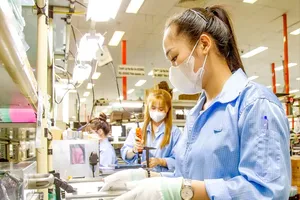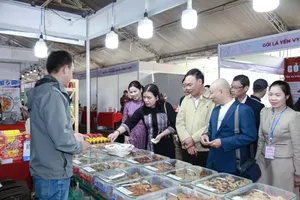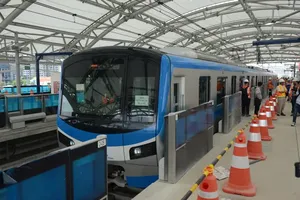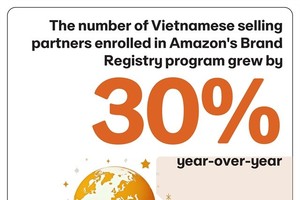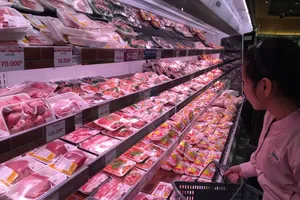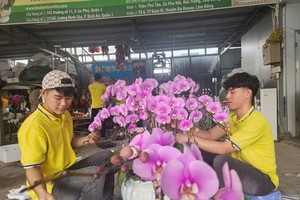
The objective is to enable local platforms to compete effectively within the national market and to facilitate the global reach of Vietnamese products.
Currently, Vietnam has a singular national-level centralized commodity exchange (mxv.com.vn), managed by the Vietnam Commodity Exchange (MXV), which has been functioning successfully for 14 years. In the initial eight months of 2024, MXV recorded nearly 35,000 market accounts, with an average daily transaction volume exceeding VND5,000 billion (US$197,160), and on certain days, transactions approached nearly VND11,000 billion.
Recently, there have been proposals to include petroleum retail businesses on the MXV trading platform. However, this idea has sparked debate and controversy. Previously, the Ministry of Industry and Trade allowed a pilot program for trading crude oil and natural gas on MXV from May 2020 to May 2024. Yet, this initiative failed to attract significant participation from businesses due to policy instability and the absence of a clear accounting and bookkeeping framework for the petroleum industry.
Even the idea of establishing a pork trading floor has faced numerous challenges. Chairman Nguyen Tri Cong of the Dong Nai Livestock Association noted that for pig trading to occur on such a platform, it is essential to establish specific standards.
Additionally, there is a need for collaboration with purchasing enterprises, product coding, and the online dissemination of information.
Furthermore, the implementation of trading floors for commodities such as pepper, coffee, and fruits has also been sluggish. In reality, for effective and high-quality trading on these platforms, the logistics of transportation and warehousing must be adequately managed; however, this aspect currently remains relatively underdeveloped.
The authorities clearly recognized the importance of establishing a Vietnamese e-commerce platform and began planning for it at an early stage. In 2021, the government approved the "Developing Domestic Trade until 2030, with a Vision to 2045" strategy, which includes plans to develop e-commerce. Later, the Ministry of Industry and Trade has also continued to collect opinions on the draft Strategy for Developing the Vietnamese Retail Market to 2030, with a vision to 2045.
At the same time, representatives from the Ministry of Industry and Trade also said that it will continue to review the law on e-commerce, supplement specific regulations on cross-border e-commerce activities - which are becoming increasingly popular and difficult to control; perfect the legal framework, creating favorable conditions for businesses operating technology platforms to develop e-commerce models, solutions and services.
According to Tran Thi Bao Thu, owner of the Moon Corner brand, Temu, Shein, 1688, Taobao have been quietly operating in the market for a long time and now they have launched products and promotional campaigns. In particular, Temu promotes affiliate marketing activities, when one person introduces a link to another to receive a commission for referrals.
She added that domestic enterprises cannot compete on price due to lack of capital. If we want the platforms to develop, there should be synchronous investment, long-term capital, and calculating a separate path to attract customers.
With the same opinion, Director Ngo Anh Duy, a supplier of consumer goods based in Ho Chi Minh City’s Tan Phu District noted that the presence of certain e-commerce platforms allows Vietnamese businesses to establish partnerships, invest in brand promotion, and market their products. Nevertheless, he cautioned that relying solely on foreign e-commerce platforms in the long run could stifle domestic enterprises and hinder their growth.
Head Tran Quang Thang of the Ho Chi Minh City Institute of Economics and Management believed that in order to develop ‘Made in Vietnam’ e-commerce platforms with better competitiveness in the international market, there should be cooperation from both sides. Enterprises need to invest heavily in technology, optimize order processing procedures and improve online shopping experiences; seek investment capital from both domestic and foreign sources as well as cooperate internationally to learn management experience and advanced technology.
Meanwhile, the State should promote investment in infrastructure, logistics services, develop high-quality human resources in the e-commerce sector, provide capital incentives, tax exemptions or reductions to support domestic enterprises in the long run. Such comprehensive and synchronous solutions can contribute to the formation of Vietnamese e-commerce platforms that compete equally with multinational platforms, promoting the consumption of Vietnamese goods.






